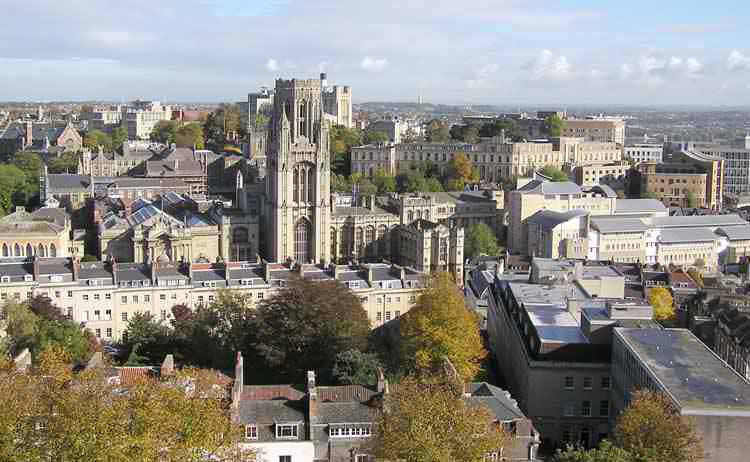This year the Southwest is set to become home to an exciting new smart tech project.
 Smart cities have long been imagined in the work of science fiction writers. But now Bristol City Council could be about to make the dream a reality. In an innovative new project known as Bristol is Open, the city could become one of the world’s first fully connected cities, with high-speed internet connections being routed in several major commercial areas.
Smart cities have long been imagined in the work of science fiction writers. But now Bristol City Council could be about to make the dream a reality. In an innovative new project known as Bristol is Open, the city could become one of the world’s first fully connected cities, with high-speed internet connections being routed in several major commercial areas.
Construction will begin this spring, starting with the installation of these networks. The project will expand over the next three years, until all aspects of city life are connected to the internet. The project’s main aspiration is to collate as much information as possible in a variety of sectors, from traffic congestion to air pollution, using the interconnectivity of the public’s smartphones. But what could it all mean for the future of smart technology?
Adaptable Internet Connections
One of the main attractions of this inner city project is as a test run for 5G mobile broadband. As faster and more expansive connections develop in the coming years, the operating system will be able to adapt to the new demands. Future-proofing in this manner will see the city develop alongside the technology it uses, with very little disruption. For the everyman, this will mean the latest mobile upgrades in a matter of months, not years.
Wireless connections will also be installed in over 1,500 lampposts across the city centre, creating a hub of connectivity. Such broad coverage should allow residents to maintain a connection even as they walk around. By collecting data from this area via sensors and the movements of smartphone users, the local council will be able to create a map of the city’s habits. Residents can choose to opt into the scheme and contribute by connecting to the wi-fi.
Smart Homes Tailored to Public Needs
After the data is collected it will be analysed thoroughly to decide how it can benefit Bristol on a wider scale. This could impact on how smart homes are developed in the future. Currently, home automation is often left to the discretion of the owner, who must either commission or undertake any smart tech projects themselves. But understanding the way in which residents interact with their environment could help cities such as Bristol build smarter homes for all kinds of property seekers. Residents in neighbourhoods closer to the city centre are bound to have different requirements to those in the suburbs.
For one, congestion is likely to be a bigger factor the nearer to town you get. By interpreting data from these areas, it could be possible to predict when traffic jams will occur and relay this information to your home system via the web. In fact, IBM has performed these kinds of analytics in Stockholm and Singapore and the same process is imminent in Bristol. Once fully automated neighbourhoods are designed and built, predictions like this could lead to quicker and more efficient road travel.
There will also be data banks for energy consumption, trends in healthcare and education, all compiled by city censuses and data collected from sensors. Anonymity will be a top priority, so there will no way an individual can be traced from the records. By looking for patterns in these sectors, Bristol could pave the way for more personal public relations.
How Will This Help the Rest of the UK?
The process in Bristol will act as a model for the way all our cities could be run one day. Smart homes are now bigger business than ever and the next step is making them available to the mass market. This will only work if the public is suitably convinced that upgrading to an automated household is beneficial to their everyday lives and not just a novelty.
From the figures and statistics the city hopes to collect over the next five years, we could find the answer to smarter, more affordable living on a grand scale. For now, smart tech is exclusively reserved for the luxury market, but by the end of the decade we could start to see more mainstream home automation.
Smart cities may still be a little way off, but a smarter home is something you can bring to life today. For a consultation on where to get started with home automation or for more information on the services we offer, please contact us via our website or call us on 020 7736 1483.